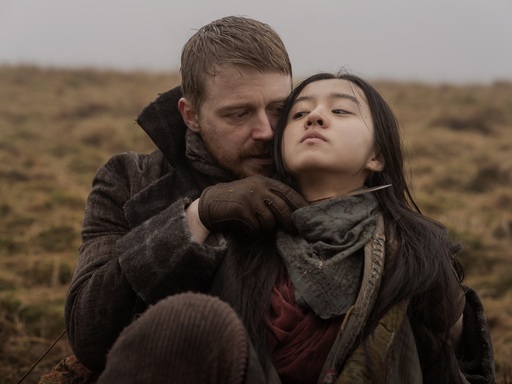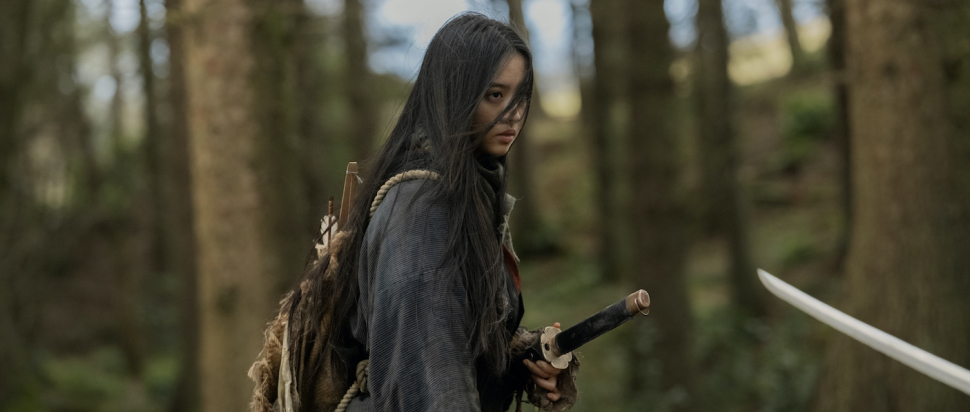Way of the Sword: John Maclean on Tornado
It's been ten years since John Maclean burst onto the movie scene with his stylish western Slow West. His second feature, Tornado, is another western riff, this time set in Scotland and centred on a young Japanese woman who's handy with a samurai sword
The opening text of Tornado informs us that its events take place sometime in 1790s Britain. But don’t be braced for bonnets and corsets: this is not your typical Georgian-era costume drama. It’s the second feature from Scottish director and Beta Band alumnus John Maclean, and like his knockout debut, Slow West, from 2015, it’s a fat-free, earthy example of a genre rarely made on these shores: a Western, albeit one with much influence from the East.
“When I made Slow West, no one was really making Westerns, especially not as their first film,” Maclean tells me when I ask him about his penchant for oaters. “So it felt like something quite unique.” It was also an excuse to explore a topic he’d recently been absorbed in: migration. “I’d become very interested in America, and particularly in Scottish people going to America, so I started thinking of a Western that would feature American immigrants.”
That earlier film concerned a lovelorn Scottish teenager (played by Kodi Smit-McPhee) travelling across the heartless plains of Colorado to find the woman he loves. Tornado switches the dynamic: its hero, the title character Tornado, is a Japanese teenager (played by newcomer Kôki) travelling with her father (Takehiro Hira) through a pitiless, almost mythic Britain, where they eke out a living through their marionette show about an avenging samurai warrior. The film opens in the heat of action, with Tornado running across a desolate landscape pursued by a criminal posse led by Sugarman (Tim Roth) and his son Little Sugar (Jack Lowden), before flashing back to earlier in the day to reveal what incident caused her predicament.
The igniting spark for Tornado's script was Maclean’s love of Japanese cinema. Not just the samurai films of Akira Kurosawa, like Seven Samurai and Yojimbo, which Maclean pays homage to throughout Tornado, but Japanese cinema of every stripe. “I’d been getting into all sorts: Onibaba and Women of the Dunes, Mizoguchi films and Ozu films, everything from the 1920s to the 70s basically. But I didn't want to make a Japanese film, because I'm not Japanese, so I struck on bringing a Japanese character to Britain.”

Tornado was shot in the Pentlands, but Maclean intentionally keeps the location hazy. “It could be the Yorkshire Moors, or it could be Cornwall, or it could be the Lake District, or it could be the Highlands,” he says. “I wanted to comment on the multicultural nature of early Britain; I wanted it to be a Britain full of all different kinds of people – a Japanese samurai, a French weightlifter, an African bandit. And I think if I'd been more specific about where it's set, I might have lost a bit of that power.”
While the world of Tornado feels almost mythic, the wants and needs of the people inhabiting this world are pretty simple: they’re just trying to survive. It feels like an antithesis to the buttoned-up emotions and petty concerns of the stately costume dramas that are a staple of UK cinema. “I wanted to stay away from kings and queens and the politics of the day, and even class to an extent,” says Maclean, “although I think class seeps into everything everyone does.” He wanted to create an anarchic atmosphere similar to Sergio Leone’s spaghetti Westerns, which, like Tornado, were also heavily indebted to Kurosawa. “I just felt that surely there were wild times here,” says Maclean. “Surely, 1790s Britain had the same kind of lawlessness as perhaps 1860s America did.”
The landscapes of Tornado certainly add to this feeling of lawlessness. Maclean shot the film in January last year. Not the ideal point in the calendar to make a film in Scotland, but at the time it felt like “now or never” for the director, who’d been trying to get the film financed since 2018. “I just seized the chance, even though it got dark at four or five o'clock, which is quite mad when you've only got 25 days to shoot a film,” he says. The production was gruelling – “we had to work so fast, like crazy fast” – but the time of year did have some advantages. “On the plus side was, it's winter, so it doesn't all look like a golf course, you know? You get this rugged look, and it's full of rough browns, and it's got the Scottish weather – we had a weather machine on set, but we hardly used it because the wind rarely let up.”
The glen in which Tornado's bloody tale takes place might look familiar to fans of The Beta Band. Maclean shot a video in that same spot with his former band for the song Trouble around 25 years ago, and it turns out there's a personal connection to the location. “I set the video there initially because that's near where our drummer [Robin Jones, who also moved into the movie business, and is the art director on Tornado] is from, so it just made absolute sense to go to where he knows, and use the same location.” That short was also a samurai flick, a mini-action epic about a kilt-wearing samurai out for revenge. It features an assassin who’s deadly with a fishing rod and a death by sgian-dubh, plus copious splurts of blood that shoot across the screen. “It was sort of my first attempt at a samurai film," laughs Maclean. "It was more influenced by Shogun Assassin, maybe, so it's slightly more superficial, but yes, it laid the groundwork.”
Tornado is released 13 Jun by Lionsgate
